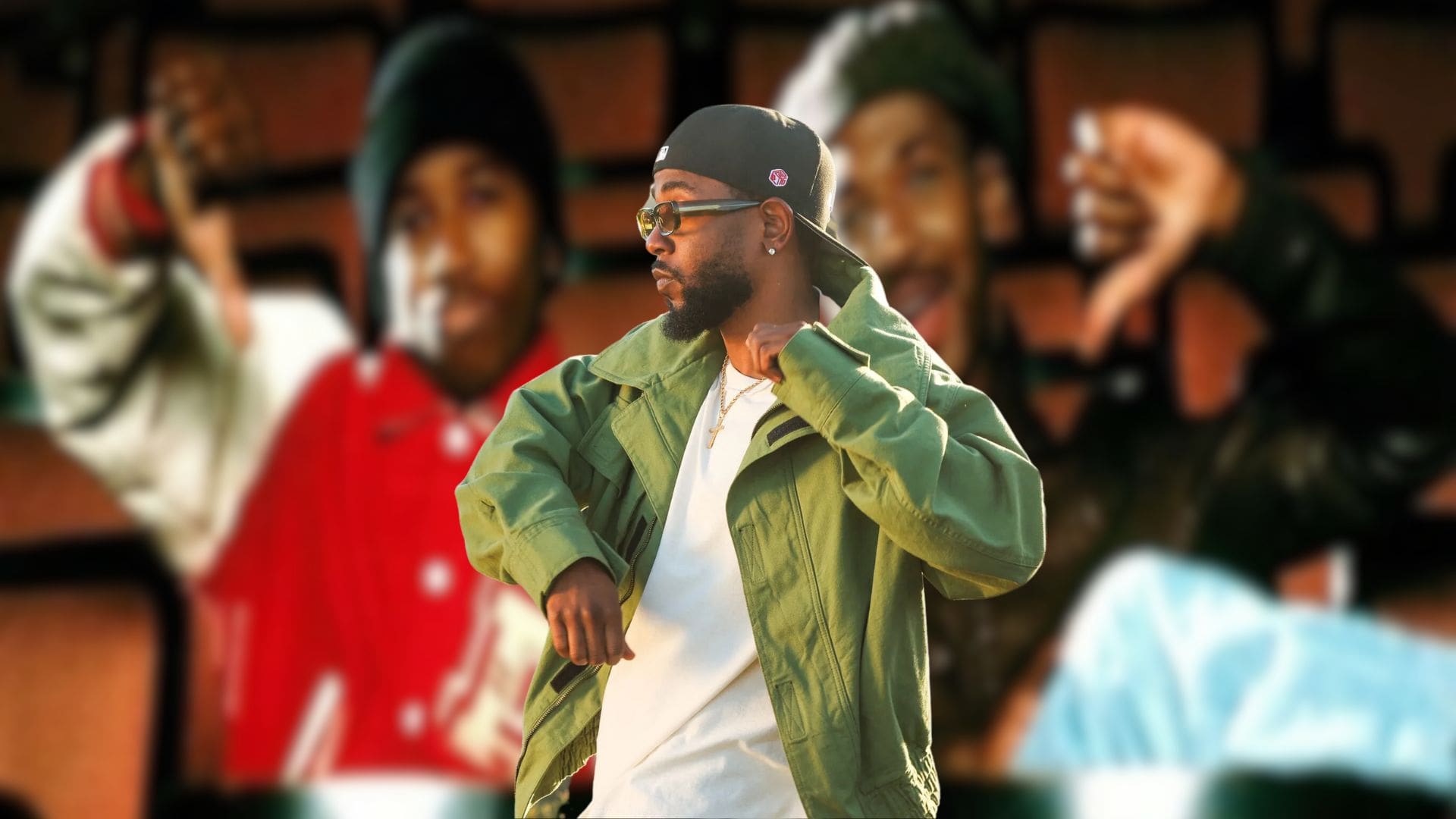
The Pop Out with White People Won’t Save You podcast
Welcome to a new format, KT & Friends, where we review films referenced in the Kendrick Lamar and Drake beef. This week we Pop Out with Jordan & Cameron (White People Won’t Save You) to review the 1978 film, The Wiz.
Hosted By
KT & Oti
For Your Reference
Show Notes
Welcome to a new format, KT & Friends, where we review films referenced in the Kendrick Lamar and Drake beef. This week we Pop Out with Jordan & Cameron (White People Won’t Save You) to review the 1978 film, The Wiz.
Enjoy A-side: The Pop Out (chat about the rap beef). B-side: The Wiz (film review) will be dropping later this week.
—
Summary
The Epic Showdown: Kendrick Lamar vs. Drake
The world of hip-hop is no stranger to feuds, but there are certain rivalries that define an era, creating a ripple effect that reaches beyond just the music. The Kendrick Lamar and Drake beef is one such saga—a clash not just of two giants but of ideologies, artistic approaches, and the very essence of what it means to be authentic.
Introduction and Setting the Scene
“Hey, friends and lovers. Welcome back to another week at the For Your Reference Podcast.” These words by KT set the tone for a potent discussion about hip-hop, cultural authenticity, and the ongoing Kendrick Lamar vs. Drake beef. Drawing parallels to film criticism and the broader cultural impact of their conflict, KT, along with guests Jordan and Cameron from the “Why People Won’t Save You” podcast, delve into the intricacies of this rivalry with fervor and insight.
Meet the Guests: Jordan and Cameron
Jordan and Cameron bring a wealth of knowledge to the table, discussing their podcast’s genesis and the critical view they adopt when discussing problematic film genres, much like the white savior narrative. Their conversation seamlessly transitions into the larger territory of authenticity in media—a perfect segue into dissecting the Kendrick vs. Drake narrative.
The Genesis of the Beef
“Everybody’s like, ‘Oh, those were all Drake disses,’” says Cam, alluding to Kendrick’s calculated art of war. Kendrick’s initial subtleties in tracks like BET Cypher escalated to overt declarations of his disdain for Drake in his later works. The hosts discuss Kendrick’s game plan, his precise strikes aimed at disassembling Drake’s carefully curated image.
Deconstructing Drake’s Image
“Drake started as a backpack rapper,” says Cam, highlighting the dichotomy of Drake’s quest for acceptance and validation. From his early days mimicking Canadian rapper K-Os, to adopting diverse musical styles, Drake’s journey appears as one in constant evolution yet rife with an identity crisis. KT and Cam agree that Drake’s career has frequently involved mimicking and adapting various cultural elements to his advantage.
Kendrick’s Masterful Deconstruction
“Only you like being famous,” Kendrick raps in Not Like Us, effectively pinpointing how detached Drake is from the core of hip-hop’s authenticity. The podcast emphasizes the cultural weight Kendrick brings to his music, creating a stark contrast to Drake’s more commercially driven approach. Kendrick, deeply rooted in Compton’s fabric, uses his platform not just for personal gain but as a vehicle for lifting an entire community.
The Pop Out Concert
The conversation shifts to Kendrick’s grand spectacle, “The Pop Out”—a concert that showcased a diverse array of LA artists, unified under Kendrick’s wing. KT exclaims with excitement about discovering new artists like Cuzzos, Blast, and O3 Flow, praising Kendrick for his continuous effort to put the spotlight on underground talent.
The Not Like Us Music Video
Discussing the Not Like Us video, KT describes the dense layers of storytelling woven into each frame. Directed by Dave Free and Kendrick Lamar, the video is a visual masterpiece that complements the powerful lyrics Kendrick delivers. It’s a testament to Kendrick’s dedication to authenticity, art, and his community.
The Unending Rivalry
“This is going to be crazy,” quips KT about Kendrick’s masterful planning, revealing how every move Kendrick has made was meticulously thought out. The podcast’s hosts collectively admire Kendrick’s ability to stay grounded, even as he plans and executes a career-defining takedown of one of music’s biggest artists.
Conclusion: Impact on Culture
In wrapping up, the podcast draws a broader message from the feud—it’s not just about the music but the lasting impact it has on culture and authenticity. “There are always going to be Drakes,” Jordan muses, hinting at how the industry churns out commercially successful but artistically hollow figures. In contrast, Kendrick represents what hip-hop—and perhaps life itself—should strive for: authenticity, community, and a relentless pursuit of truth.
—
Final Words
The Kendrick Lamar vs. Drake beef is a watershed moment in hip-hop, symbolizing a greater clash between art and commerce, authenticity and façade. Just as Jordan and Cameron dissect problematic films, the conversation around this feud unpacks the layered complexities, ultimately celebrating Kendrick not just for his music but for the cultural beacon he represents. Whether we love or hate the drama, there’s no denying its indelible mark on the world of music and beyond.
Episode Details
- Duration
- 0:00
- Released
- July 9, 2024
- Category
- Episode
- Hosts


Up Next
We Need to Talk About Kevin – Deliver Us From Eva
February 10, 2026
Ratcatcher – What’s New Pussycat?
February 3, 2026
Marty Supreme, 28 Years Later: The Bone Temple, Night Patrol & My Brother’s Band
January 31, 2026